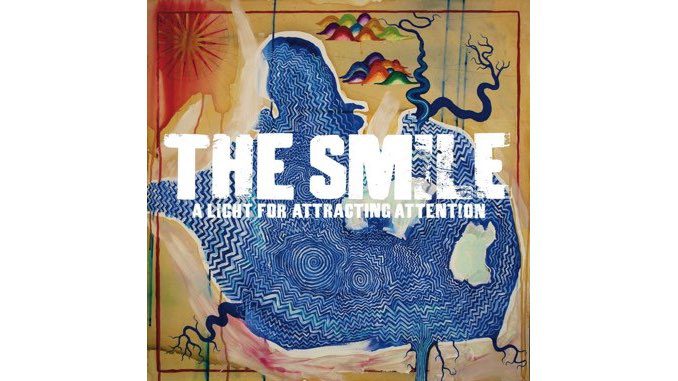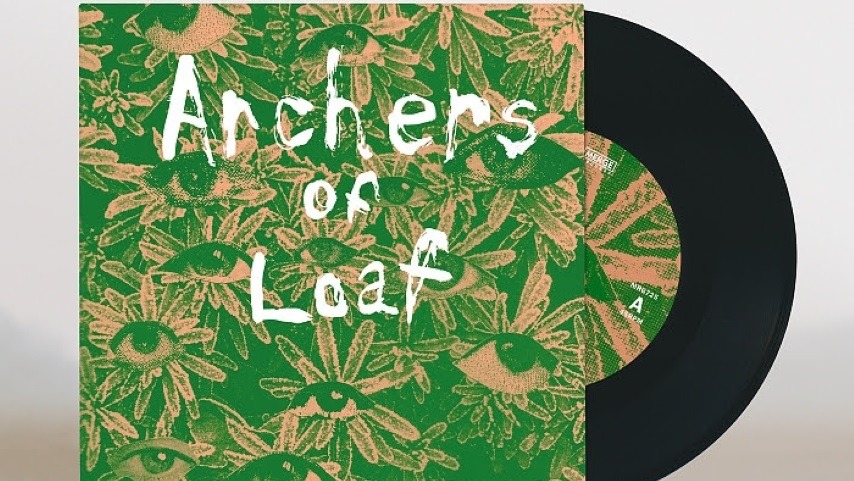During the first year of the pandemic, as Radiohead seemingly shifted from active band to archival project, Thom Yorke and Jonny Greenwood did something they haven’t done since their teenage years: They formed a new band together. They called it The Smile—a reference to a Ted Hughes poem, not their sunny dispositions, in case there was any confusion—and they invited Tom Skinner, drummer for the British jazz group Sons of Kemet, to fill the intimidating position of the sole non-Radiohead member of the trio.
The Smile, Greenwood later explained, “came about from just wanting to work on music with Thom in lockdown.” Why this required starting a new band instead of writing material for a new Radiohead LP has never been entirely clear. But when The Smile finally emerged at the start of 2022 with their debut single, “You Will Never Work in Television Again,” a lurching anxiety attack of a song that could convincingly pass for an outtake from the My Iron Lung EP, an answer seemed to present itself: Was this new project an excuse for Yorke and Greenwood to shirk expectations, set aside their film scores, and turn up their amps like it’s 1994 and Yorke’s bleached-blonde hair still flops over his ears?
Well … maybe. Nearly half the time, A Light for Attracting Attention buzzes and crackles with a sense of reckless abandon absent from the last 15 years’ worth of Radiohead releases. “You Will Never Work in Television Again” has the high-octane guitars and mile-a-minute Yorke delivery to boost a dead person’s heart rate. It’s a revelation. “Thin Thing” is menacing and wonky, with a burbling guitar riff that seems maximized to confuse those YouTube guitar tutorial guys. These songs are insular and anxiety-ridden, shorn of soaring choruses or straightforward rhythms, but they are also invigorating jolts of art-rock energy. Like much of this album, the emphasis is on proggy interplay over studio trickery.
But this is hardly a barebones garage-rock diversion. The Smile contain multitudes. No Radiohead side project has ever sounded quite as much like Radiohead as this band does, invoking many eras of the band’s career at once. I assume I Can’t Believe It’s Not Radiohead! was a rejected album title.
If it’s the symphonic splendor of A Moon Shaped Pool you crave, you’ll be pleased with the minor-key twists and turns of “Pana-vision,” which shimmies and shakes in 7/8 time, or the gorgeous balladry of “Open the Floodgates,” which recalls “Daydreaming,” though it’s actually been floating around since 2009. (Resurrecting a live rarity from a decade prior—what could be more Radiohead than that?) If your heart lies with the abstract soundscapes of Kid A and Amnesiac, you may be drawn to downcast, synth-y cuts like “The Same” and “Waving a White Flag,” though these strike me as the album’s only weak tracks. They lack the wild-card element that most distinguishes The Smile from Radiohead: namely, Tom Skinner.
Skinner is a fiend behind the kit. He’s a jazz player, not a rock drummer, and he dazzles with sinuous shuffles and intricate grooves. Skinner’s presence pushes the band towards syncopation and odd time signatures (am I crazy, or is “Skrting on the Surface” in 11/8?), and he has a way of playing against Greenwood’s riffs with spiky counterpoint. He can play with restraint when required—on “Speech Bubbles,” he underlines one of Yorke’s wonderfully lush, desolate melodies with a pitter-patter shuffle—but he also steals the show on songs like “The Smoke,” whose funky, reverberated drum pattern sounds like a sample of a long-forgotten psych-rock gem from 1973.
Skinner’s unique playing delineates The Smile from their ancestral band and makes this album a vehicle of furious, eccentric grooves. The percussive nature of this material, particularly the busy, rustling rhythms of “A Hairdryer” and “Thin Thing,” are likely to remind fans of a certain rhythm-heavy Radiohead album from 2011. But while the drums on The King of Limbs sounded layered and manipulated, borne from loops and sequences, these drums are raw and heady. And on songs like “Pana-vision” and “Speech Bubbles,” this record has a swooning warmth, with strings performed by the London Contemporary Orchestra and a full brass section, as well.
Lyrically, A Light for Attracting Attention is awash in the kinds of cryptic mantras of unease and alienation that tend to preoccupy Yorke’s writing. He has a knack for decontextualizing mundane bits of cultural detritus—“Can we have the next contestant please,” he mumbles in “The Opposite”—and for both finding and subverting meaning in repetition. “We don’t know what tomorrow brings!” he howls over and over during the punkish number of the same name, his voice gradually subsumed by elastic synths and wordless wailing. In “The Same,” a chilly, synth-splattered ice bath of an opener, Yorke’s vague murmurs escalate to the level of a repeated plea: “Please / We are all the same.”
A song like “Free in the Knowledge,” in which Yorke reflects on a changed world, could be a rumination on the past two years of pandemic-era instability, but it could also be a lyrical idea floating around since 2012, for all we know. During its last minute, this grayscale ballad segues into what strangely resembles an interpolation of Michael Jackson’s 1988 hit “Man in the Mirror.” I suspect Yorke is as likely to clarify the song’s meaning for Genius annotators as he is to announce a Pablo Honey 30th anniversary tour.
Part of what makes A Light for Attracting Attention interesting is that the band’s legacy is still so uncertain. Could this be Yorke and Greenwood’s Grinderman, a fleeting, one-off side project destined to inject some fire and vigor into their “main” band? Or could it be more akin to Stephen Malkmus and The Jicks—which is to say, a long-term creative arrangement destined to subsume Radiohead, whose continued existence will hinge on the occasional reissue or reunion tour?
Who knows. As the man says, we don’t know what tomorrow brings. For now, A Light for Attracting Attention is a versatile beacon for Yorke and Greenwood’s groovier side, and a remarkably assured debut that—let’s be honest—doesn’t really feel like a debut at all. Looking forward to hearing more from these fresh-faced newcomers.
Zach Schonfeld is a freelance writer and journalist based in New York. He contributes regularly to Paste, Pitchfork, Vulture and other publications. Previously, he was a senior writer for Newsweek. His first book was published in November 2020.




